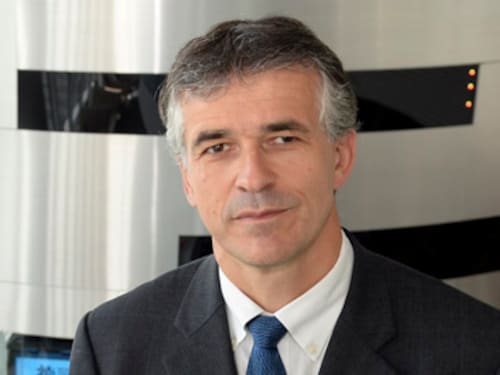Vincent Cobee: Datsun is a Global Brand with a Local Touch
After 27 years, Nissan is reviving its Datsun brand for the emerging markets. Vincent Cobee, head of Datsun, tells Forbes India where the brand fits in today


Q. Is Datsun the largest high-growth-markets project that Nissan has undertaken in its corporate history? Or is it just another large product development exercise?
Cobee: This is not a product endeavour. The Nissan brand has had very specific product initiatives targeting the high end [segment] with sports sedans, affordable sedans or city hatchbacks. Here we are talking about a complete brand endeavour so it has product content but it also has development logic, industrial production, brand and marketing philosophy, distribution and service component—the whole span of automotive businesses.
It is by far the biggest endeavour Nissan Motor Company has undertaken since the launch of Infiniti. And knowing that Infiniti was launched mostly for North America and the luxury segment at that time (in the early 80s), this one is targeting a completely different set of countries and has a multi-country approach which Infiniti didn’t have. In terms of the magnitude of business engagement, the only thing that comes close to this is the decision (in the early 60s) to go abroad.
Q. Datsun is targeted at high-growth markets. But what really are you hoping to achieve?
Cobee: What Datsun is doing, so far nobody has done. You have brands across the world and Nissan is one such competitive brand, a global brand with global products. You can find the brands in 180 markets they are Japanese, American, European or Korean. But then you look at the high-growth markets and you ask yourself: Who is the dominant player in the market below the $10,000 segment? They are not the same in each country.
In India, it is Maruti Suzuki and a strong contender is Hyundai. In Indonesia, the main player is Daihatsu. In Brazil, it is Fiat and Volkswagen. In Russia, it is AvtoVAZ with the Lada brand. China is again a different ballgame with very specific segments where there are local brands from international joint ventures. There is no global brand with local products today and that’s what Datsun wants to be.
Q. How did you land this assignment? Was it a complete surprise?
Cobee: I was preparing for the Micra launch in Thailand. At that time, my job was to launch the Micra and Sunny in India, Indonesia, Mexico, and later in Latin America and China. Two guys came to me with the offer: Andy Palmer, executive vice president of Nissan and [Carlos] Ghosn’s chief of staff. Nothing is a complete secret in the company. When you are the programme director of the entry range of the Nissan brand, people come and ask you [whether] you would be able to do a product on the same asset cost that would be much lower than the current brand identity then you start understanding the line.
Q. What are Ghosn’s expectations from the Datsun?
Cobee: There are a number of things which are fascinating about Ghosn. I have had the pleasure of working with him, being around with him for 11 years now. First, he has a very clear and obvious communication style. If there is one trait which I find extremely impressive is that you never hear Ghosn make a complex argument. He will always make an argument which is so well-digested and framed and structured that it becomes obvious to you and you look at him and think, why did I not think about this subject like this before?
The second trait of Ghosn which is extremely descriptive is that he is result-oriented. So Ghosn’s expectation from Datsun is very simple: Bring an attractive, modern offer to the high-growth markets by 2014. The only control criteria on this and I will tell it you in financial jargon is NPV positive in other words you pay back what you invest. When you start a new venture, finance is a control item it is not the start of an objective… the [actual] target is competitiveness, attractiveness and time.
First Published: Jul 04, 2013, 07:32
Subscribe Now